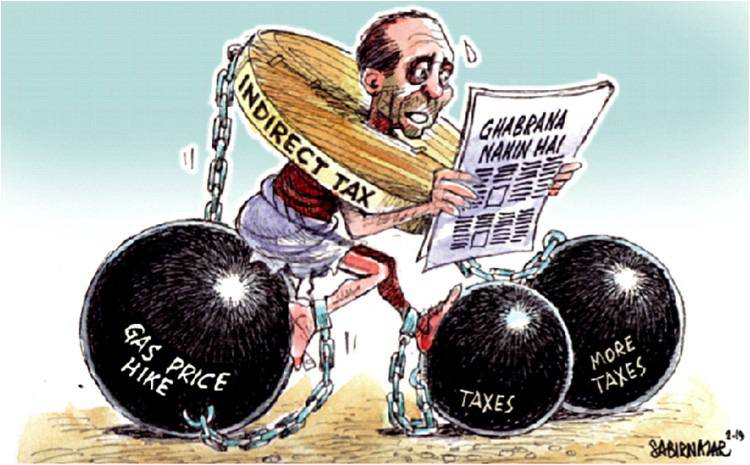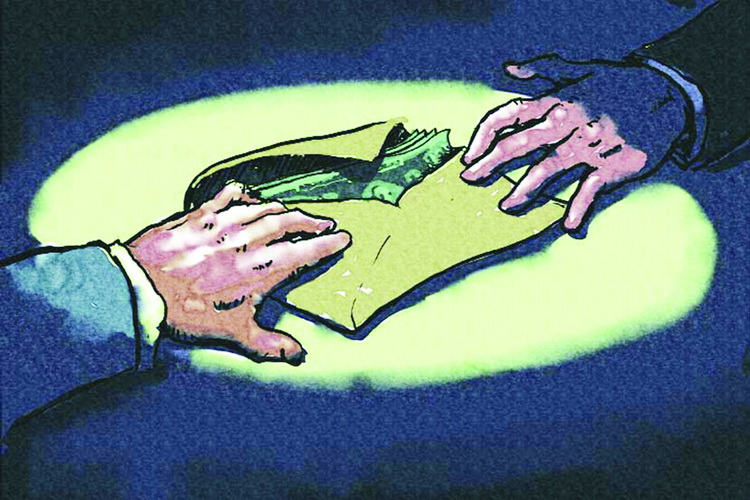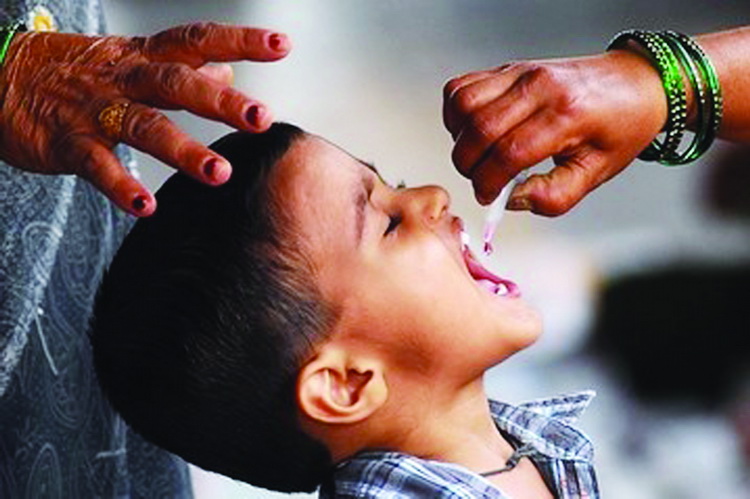
Bad budget
Madam,
The new government has unveiled its budget for the upcoming fiscal year. When studied carefully, it becomes obvious that this is a directionless document with elusive targets, which protects some powerful groups from liabilities, and which fails to address key economic challenges facing our country today.
Tax on cigarettes and sugary drinks has been nominally raised. Tax on 2,000 cc cars is kept at mere five per cent and cars above 2,000 cc at 7.5pc.

No cap is fixed on import of luxury and unnecessary foreign consumer items which have flooded the market, displacing local products and is a burden on the country’s reserves.
The government maintains its import policy, which is being revisited even in some advanced economies. There is little focus on correcting the current account deficit, which is the mother of all the economic ills.
Despite the ambitious revenue target, the budget records a large deficit which will be bridged principally through foreign loans. The vicious debt circle will further aggravate as already 50pc of the budget is going into debt servicing. The whole exercise, in hindsight, appears futile as the will, competence and fervour are missing. It is a lazy document, prepared in haste and fails to present any solution to our economic challenges.
Altaf Akhtar,
Lahore.
Diligent doctors
Madam,
Sight is the most precious of all divine gifts. We should be grateful for this blessing and take care of our vision. Since eyes are also fragile, a specialist should regularly check their health. People usually consult optometrist, taking them as specialists whenever any eye ailment occurs. There is no doubt that optometrist specialists called O.D.S (doctor of optometry) but it must be remembered that they are not medical doctors and do not have a wholistic understanding of the human body.
They are traditionally trained to treat a limited number of vision-related conditions, such as near-sightedness, far-sightedness and astigmatism. They can also prescribe glasses and contact lenses after evaluation.
However, an ophthalmologist is a medical doctor or a doctor of osteopathic medicine (DO) who specialises in eye and vision care. They perform all the same functions as an optometrist, but are much more specialised and have in-depth training. They are trained to perform eye exams, diagnose and treat diseases, prescribe medications and perform eye surgery. They also write prescriptions for glasses and contact lenses. Therefore, whenever an eye illness or injury occurs, one should directly consult a fine ophthalmologist.
There are many ophthalmologists in the city. However, an experienced surgeon with skilful hands is not easily available. Dr Azam Ali of Liaqat National Hospital stands distinguished among all ophthalmologists in the city. He has been working as a senior ophthalmologist for two years, paid services as head of ophthalmology department at Agha Khan Hospital for an entire decade, has worked as an eye specialist at Moorfields Hospital in London. He has outstanding skills in diagnosis, treatment and management. He treats patients of all ages - from little infants to the elderly with acute and long-term eye conditions, applying both medical and psychological perceptions.
He possesses excellent diagnosis skills. He always employs emotional and moral support with his medical prescriptions. His display of compassion and empathy towards his patients not only comforts them but also builds a relation of respect. A patient once treated by him always recommends him for all kinds of eye treatments. I urge everyone to visit this doctor for all their eye troubles.
Mian Ashfaq,
Via e-mail.

Tragic news
Madam,
Last week, I read the news that three men were injured in a fire caused by an LPG cylinder in Lahore. I was shocked when I realised how common these incidents have become. Every other week I hear of similar incidents. Last month, in my hometown in Sialkot, a similar incident took place at an LPG refilling shop; a fire broke out which left the shopkeeper’s son severely injured. I heard that the child will never be able to walk again. I believe such incidents can be avoided if certain precautions are taken by shopkeepers. We need to raise awareness about the issue and ensure that the material they have is up to date. The government should not turn a blind eye to this issue. They should ensure that the cylinder manufacturing factories are maintaining quality checks.
Rania Javed,
Sialkot.

Dealing with corruption
Madam,
Since the inception of Pakistan, the country has witnessed rampant corruption and till today, there seems to be no end in sight.
In the past, many governments were sacked on corruption charges. Despite having many strict anti-corruption laws, corruption is increasing. In a recent survey conducted by the Transparency International, Pakistan rankings lowered from 42th most corrupt country to 34th in the world. The root causes of rampant corruption are lack of effective accountability mechanisms, poor performance on part of respective institutions, unchecked and unlimited power of feudal for vested interests.
The presence of corruption and corrupt practices play a pivotal role in deteriorating law and order and shackling the economy which leads to the inflation, unemployment and poverty in the country.
Pervasive corruption in the country can be checked by applying certain measures. The government should ascertain the rule of law; it means equal application of law, equal protection by the law and equality before law, effective and impartial accountability and an active role of media to eradicate.
Riaz Ahmed,
Lahore.

Polio cases
Madam,
Polio is once again on the rise in Pakistan and vulnerable children below the ages of five are being affected.
In Khyber Pakhtunkhwa, there are many children suffering from polio. According to reports, eight more cases have surfaced this year. Till June 2019, 23 cases have appeared; 18 in KP, three in Sindh and two in the Punjab. This shows that polio is on the rise and is destroying the lives of small children. Although the government is trying hard to save these children, most parents refused to vaccinate them. This is dangerous. I urge parents to take polio drives seriously and to not risk the lives of their children on the basis of some unscientific views.
Raza Khan,
Peshawar.

